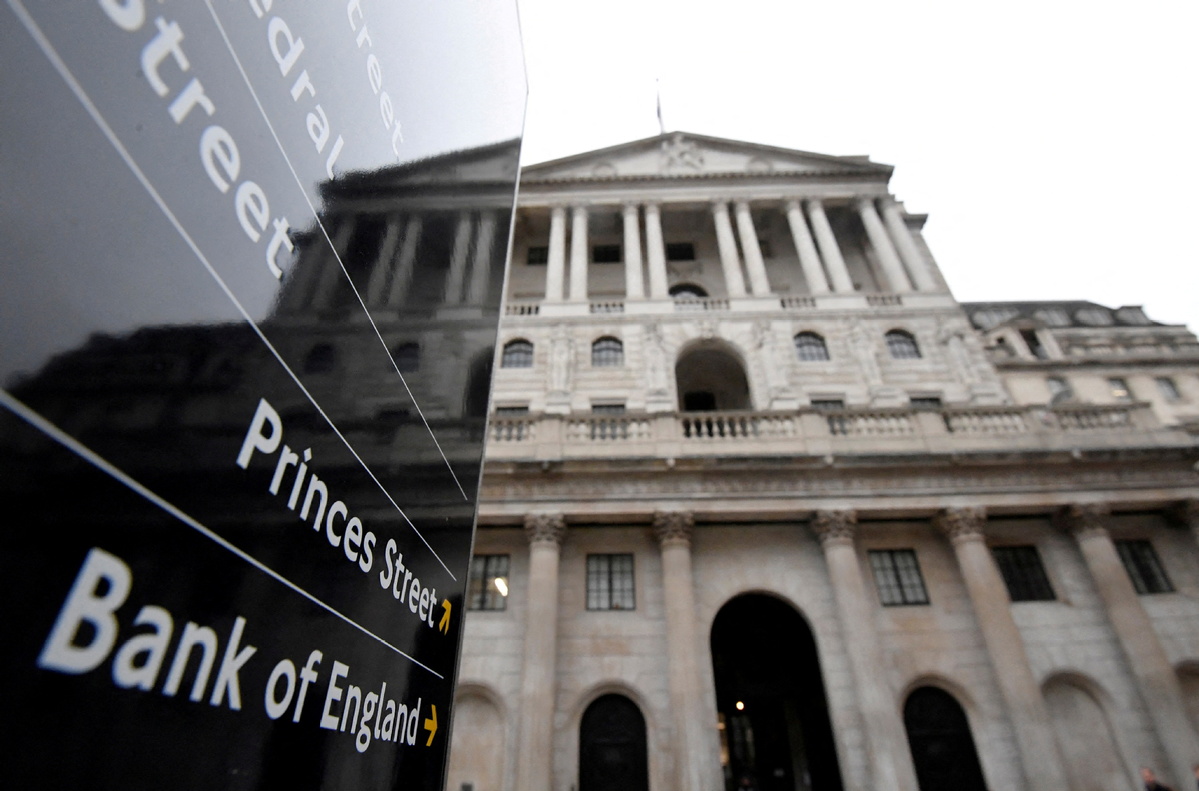Bank of England hikes interest rate to 13-year high


The Bank of England raised the United Kingdom's base interest rate on Thursday - from 0.75 percent to 1 percent - in a bid to lower Consumer Price Index inflation, which was running at a 30-year high of 7 percent.
The BBC said the central bank wanted to lower the inflation rate because it had caused consumers to rein in their spending, which dented retail sales in March, causing them to fall in value by 1.4 percent.
The base rate hike, the fourth since December, will heap more misery on UK households grappling with a recent increase in tax on earnings, massive rises in the cost of energy, and sharply rising prices for food and other necessities. It will make mortgages more expensive and push up the cost of other borrowing, including bank loans and credit card debts.
Ross Boyd, chief executive of the mortgage comparison site Dashly.com, told The Sun newspaper: "The Bank of England's main job is to maintain inflation at 2 percent and it's currently way, way beyond that. Household finances are already being squeezed from all angles, and interest rate increases could see the cost of servicing certain forms of debt rise. There could be a brutal few months, or even years, ahead."
Thursday's rate rise was even more remarkable when contrasted with the bank's base rate in December, which was 0.1 percent. It is now at its highest level since February 2009.
While the UK's central bank uses interest rate hikes to cool inflation, some experts said putting it up now was not appropriate, because inflation was not being driven by cash-rich spenders, but by a global rise in the price of oil and gas, a spike in demand triggered by the end of many nations' lockdowns, and supply-chain impediments.
Paul Johnson, director of the Institute for Fiscal Studies think tank, said on Radio 4's Today program: "If you've got a mortgage and it goes up by half a percent or 1 percent, proportionally, that's a very big increase. That could be doubling your mortgage interest payments over a period of time, so even small changes now … could have really big effects on people who have got significant mortgages."
The central bank's Monetary Policy Committee, which sets the UK's interest rate, said as it unveiled the new one that the nation could be heading for a recession and double-digit inflation later this year. And it noted that the energy price crunch could cause long-term damage to the economy by pushing up unemployment and contributing to weak or negative growth throughout 2023.
"Global inflationary pressures have intensified sharply" it said, as a result of the situation in Ukraine.
"This has led to a material deterioration in the outlook for world and UK GDP growth," the committee added.
The Daily Mail newspaper noted that unemployment has been running at 3.8 percent, which was the lowest level since 1974, and far better than the 10 percent it ran at through much of the 1980s and early 1990s.

































